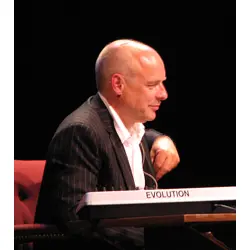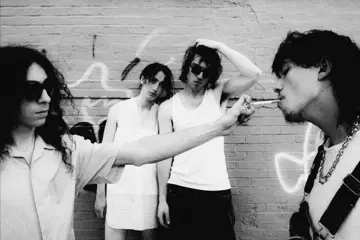 Brian Eno
Brian EnoSuper-producer Brian Eno makes his inevitable return to ambient music with Reflection, an almost nostalgic meditation on the form itself.
Unlike his previous efforts (harking all the way back to the movement's watershed moment, Ambient 1: Music For Airports), Eno's vision is not to explore endless loops to find shape and meaning, but rather to pleasantly drown in the method of the thing. To go further with the metaphor, Eno himself describes the process as sitting by a river: it may be the same river travelling along the same course, but its subtle variations are endless and its architecture worth examining.
Reflection is an album that stimulates thought. It's engaging in a way that Lux or Neroli isn't, even though Lux plays with a more dynamic palette. On the surface, Reflection is a slow-moving cloud of low, shimmering metallic tones; hollow, like huge vibraphones being played with bones. Its shifts are unpredictable and interesting, and bass notes move in and out like distant thunder. Its phrases slowly jostle for attention, constantly being adjusted.
Reflection is available in two versions: the album, containing a single discrete track, and an app, that plays with several simple algorithms that produce (potentially) limitless shifts in tone and texture.
Eno talks about musicians being farmers or cowboys, the former tilling the same soil, looking for new life, while the latter lives to roam and to seek. Both characters reside within him and Reflection is the result.
Don't miss a beat with our FREE daily newsletter















